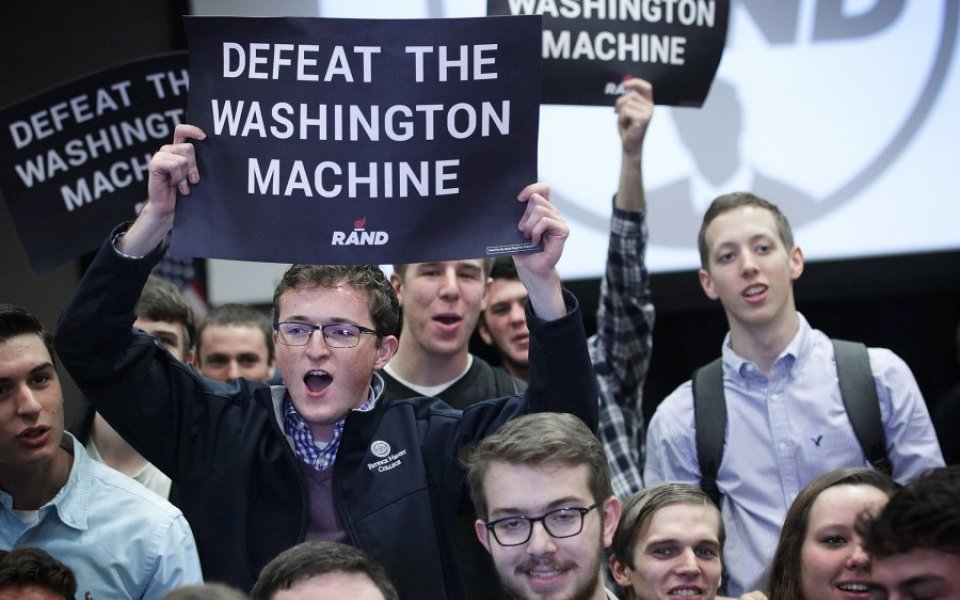Rand Paul: Farewell to the most interesting man in US politics – but not to his libertarian ideals

The first round of Americans cast their votes in the 2016 US presidential primaries in Iowa on Monday evening, and the results shocked everyone.
The polls were wrong: senator Ted Cruz took 28 per cent of the vote and was declared the winner, despite trailing Donald Trump for weeks. Trump secured 24 per cent, earning himself second place. It was a strong showing for a candidate who has never held office and had virtually no ground game to turn out the vote in Iowa; but for a candidate whose entire strategy is based on the promise of winning, second place was an utter disaster.
But the real star of Monday evening was senator Marco Rubio, who managed to secure 23 per cent, just 1 per cent behind Trump.
In the primary process, it is not always the percentage of votes secured that tells the story, but rather what those votes mean within that particular state. In a socially conservative environment known for rejecting moderates and swinging to the right, Rubio’s result suggests he is gaining momentum, highly electable, and not as repugnant to the anti-establishment crowd as previously thought. He should feel very confident going into the next round of primaries.
But the result didn’t just come as a surprise to viewers at home. Indeed, many candidates who had their name on the ballot in Iowa were also shocked. Rubio vacuumed up “somewhat conservative” voters, leaving scraps for most of the other “establishment” candidates. Jeb Bush, Chris Christie, and John Kasich only managed a meagre 2 per cent each.
Several candidates – including former governor Mike Huckabee and former senator Rick Santorum – have since suspended their campaigns. Most had such low polling numbers they were either demoted from the primetime debates, or never had enough support to be in the spotlight to begin with. But the real surprise was senator Rand Paul’s decision to exit the race, after placing fifth in the Iowa caucus, with 4.5 per cent of the vote.
Libertarian Paul predicted a much bigger success in Iowa, telling media outlets that his recruitment of 10,000 university students would deliver a shock. But he only managed to secure 13 per cent of 17-29 year olds, with Cruz, Rubio and Trump all taking significantly higher percentages.
Less than a year ago, Time magazine deemed Paul “the most interesting man in politics”. Unfortunately, the libertarian movement has lost traction in recent months, as the Syrian crisis and attacks abroad – Paris specifically – and at home in San Bernardino made it easy for Paul’s competitors to cast his scepticism of foreign intervention as dangerous, and paint him unfairly as a caricature isolationist.
Paul will be missed in this race, especially during the primary debates. Though his campaign failed to gain traction among voters, the presence of a liberty-minded constitutionalist won the praise of conservatives and moderates alike, who valued Paul’s contributions on cautious foreign policy, police accountability, and drug reform. Paul’s criticism of Christie as the “World War III” candidate or his check on Trump’s call to undermine individual liberties weren’t the stuff of political pandering; he was tapping into values all conservatives under a broad church appreciate: responsibility, honesty, and a respect for the constitution.
Thankfully, Paul will almost certainly return to Kentucky and campaign to keep his seat in the Senate for the next six years. His positions and values may not be mainstream within the Republican Party, but they are invaluable for its existence and more importantly for its progression. Republicans have the bad habit of straying off into the deep end of hawkishness and protectionism – Paul has a knack for reeling them back.